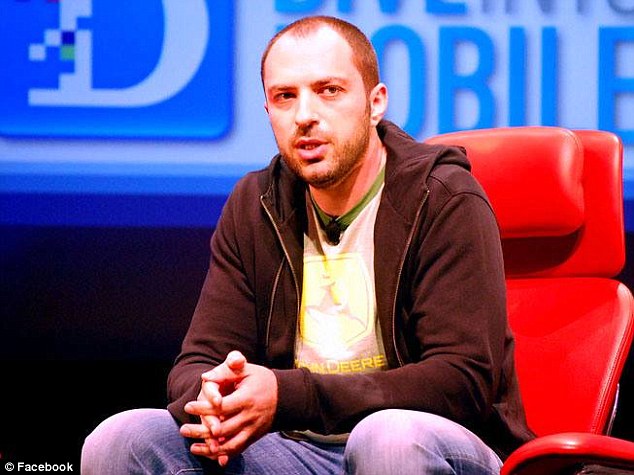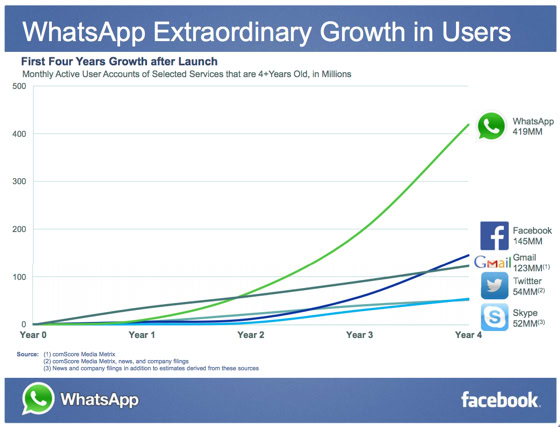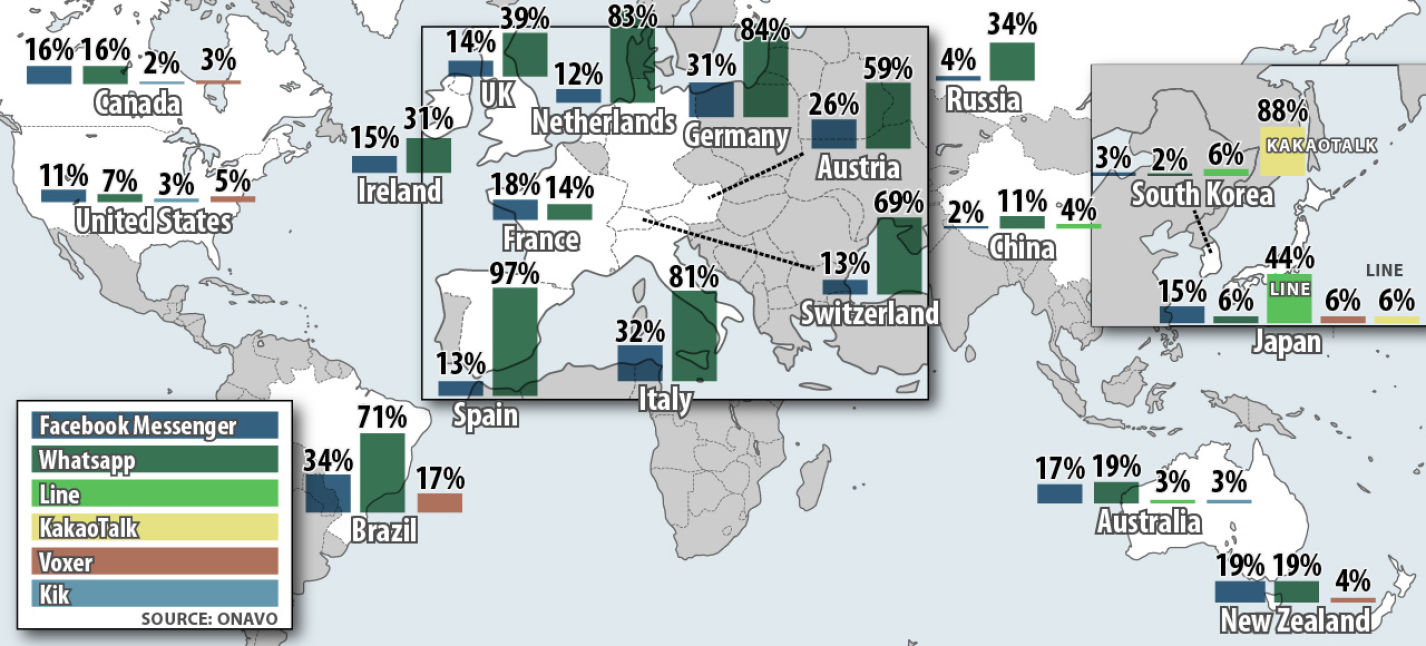Affiliate links on Android Authority may earn us a commission. Learn more.
What is WhatsApp, and how popular is it ?
February 20, 2014

Yesterday evening, Facebook dropped the bomb: the social network giant will buy WhatsApp, a messaging service, for a total of $19 billion, including $16 billion in cash and stock, and $3 billion in restricted stock units for WhatsApp’s employees.
Several readers commented on our post on the acquisition along the lines of “I never heard of WhatsApp” or “What’s so special about it?” We’re explaining in this post.
From rags to riches
WhatsApp is a cross-platform instant messaging app for Android, iOS, Windows Phone, BlackBerry, Symbian and other operating systems, that lets users communicate through text, voice, and images over Wi-Fi or cellular networks. It competes with services like Facebook Messenger, Google Hangouts, BBM, iMessage, Line, Viber, KakaoTalk, or Skype.
WhatsApp was created in early 2009 by Ian Koum, a Ukrainian immigrant living in Mountain View, California, who, at one point, had to rely on food stamps to make ends meet together with his mother.

Koum’s original idea was to give users a way to share statuses like “I am busy” or “At the gym” with people in their network. This is why the app is called “WhatsApp” – Koum chose the name because it sounded like “what’s up”, which was essentially what the app was originally meant to communicate to one’s contacts.
WhatsApp was first launched on the iPhone, and struggled in the beginning, with just a few dozen users using it actively. Then Apple introduced push notifications on iOS in June 2009, and Koum used the new feature to let users ping contacts every time they updated their status. People soon started to use this feature to talk with friends by updating their statuses, and, almost inadvertently, WhatsApp turned into a messaging service.
WhatsApp wasn’t the first cross platform messaging service, but it was special in that it used users’ phone numbers as “logins”, unlike apps like Skype or Gtalk, which required users to sign up for accounts. BBM did something similar, but it was restricted to BlackBerry devices, and stayed like that until late last year.
Since its modest beginnings in 2009, WhatsApp ballooned into a giant, by extending to Android, BlackBerry, and other platforms, and by continuously adding new features. And now Mark Zuckerberg dropped $19 billion on it, or about $42 per active user.

How big is WhatsApp?
Yesterday, Facebook announced some very impressive numbers about WhatsApp:
- 450 million users using the service each month
- 315 million users using the service every day
- Number of sent messages on the service is rivaling the total number of SMS messages send in the world
- One million new users register every day
So, if WhatsApp is so large and successful, how come there are people who are not familiar with it? The answer is localization – WhatsApp is very successful in some markets, such as Europe and Latin America, but lags behind in Asia or North America.
Here’s a map created by TechCrunch, showing the market share of the top messaging services across the world. The map uses data from Onavo, an analytics company that Facebook bought in October 2013, the last month when public data is available:

As you can see, WhatsApp is doing extremely well in Europe, crushing competitors in Spain, Germany, or Italy. The service is also strong in Brazil and Russia, but lags behind Facebook in North America, and behind Line and KakaoTalk in Japan and South Korea respectively.
According to Jana Mobile, WhatsApp holds shares of between 50 and 80 percent in fast growing emergent markets like India, South Africa, Nigeria, or Mexico.
There you have it – WhatsApp might not be a household name all over the world, but it’s strong in many huge markets, including some that are likely to grow the most in the next years. More importantly, WhatsApp is very popular in regions where Facebook Messenger is not doing so well, which is probably one of the main reasons behind the acquisition.
How popular is WhatsApp within your circles? Tell us in the comments.
[poll id=”470″]
Thank you for being part of our community. Read our Comment Policy before posting.